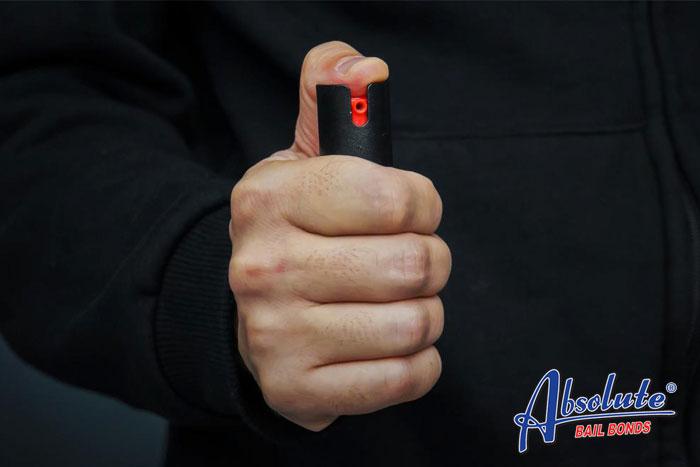Table of Contents
- Age Restrictions and Legal Frameworks Governing Pepper Spray Ownership
- The Rationale Behind Age Limits and Public Safety Considerations
- Challenges Faced by Young Adults in Accessing Pepper Spray for Self-Defense
- Recommendations for Policy Improvements and Responsible Ownership Education
- Future Outlook
Age Restrictions and Legal Frameworks Governing Pepper Spray Ownership
Understanding the legal landscape surrounding pepper spray reveals a complex web of age limitations designed to balance self-defense rights with public safety. Many jurisdictions restrict ownership strictly to adults, typically those 18 years and older, recognizing the potential dangers if misused by minors. This age threshold ensures that individuals possessing pepper spray are considered mature enough to handle it responsibly. In certain states and countries, additional permits or safety training may be required, further emphasizing the importance of accountability when carrying such defensive tools.
Age restrictions also reflect varying social attitudes about the use of force and personal protection. Some regions incorporate tiered access frameworks, where younger individuals might gain possession under parental supervision or legal exemptions for specific purposes. Generally, these rules cover:
- The minimum legal age for purchase and possession
- Mandatory background checks before acquisition
- Regulations on transport and public carrying
- Limits on the concentration or type of chemical agents used
Failing to comply with these frameworks can lead to legal ramifications such as fines, confiscation, or criminal charges, underscoring the gravity of adhering to established laws. As pepper spray remains a potent self-defense tool, understanding how age intersects with legislation is crucial for any prospective owner.
The Rationale Behind Age Limits and Public Safety Considerations
Age limits on pepper spray ownership are fundamentally linked to concerns about public safety and the responsible use of a potentially harmful tool. Regulators must strike a balance between providing self-defense options and preventing misuse or accidents among younger individuals who may lack the maturity, judgment, or awareness of legal consequences surrounding pepper spray. By setting a minimum age, authorities aim to ensure that users have the cognitive ability to understand when and how to deploy pepper spray appropriately without escalating conflicts unnecessarily.
Several factors contribute to the rationale behind these age restrictions, including:
- Legal responsibility: Younger individuals may be less aware of the serious legal repercussions if pepper spray is used unlawfully or recklessly.
- Safety risks: Improper handling can cause accidental injuries to the user and bystanders, a risk heightened by less mature users.
- Ethical considerations: Ensuring that self-defense tools are not easily accessible to minors helps reduce the likelihood of aggressive or impulsive behavior involving such products.
Challenges Faced by Young Adults in Accessing Pepper Spray for Self-Defense
Young adults often encounter significant barriers when attempting to legally obtain pepper spray for personal protection. Stringent age restrictions, typically set at 18 or higher, automatically exclude many in the 16 to 17 age bracket who may already be vulnerable or seeking enhanced security measures. This limitation can leave them feeling unprotected, especially in areas with high crime rates or when traveling alone. Furthermore, inconsistent regulations between states or regions add complexity, creating confusion about where and how they can lawfully purchase or carry pepper spray.
Beyond the age requirements, young adults face additional challenges that dampen their ability to utilize this self-defense tool effectively:
- Verification processes: Strict ID checks and background screenings can delay or deny access.
- Limited availability: Some retailers refuse to sell to younger customers regardless of legal allowances.
- Stigma and misinformation: Young people may be discouraged by societal biases that question their maturity or intent.
Recommendations for Policy Improvements and Responsible Ownership Education
To strike a balance between public safety and personal protection rights, policymakers must consider more nuanced regulations that go beyond simple age thresholds. Implementing tiered licensing systems that incorporate mandatory training courses could ensure that individuals understand the responsible use of pepper spray before gaining ownership. Such programs should emphasize de-escalation techniques, legal boundaries, and proper handling. Additionally, accessibility to educational resources must be improved, leveraging digital platforms for wider reach and engagement, particularly targeting younger adults who are most impacted by age restrictions.
Beyond legislative measures, fostering a culture of responsible ownership requires community and stakeholder collaboration. Law enforcement agencies, advocacy groups, and retailers can work together to develop awareness campaigns highlighting the ethical use of pepper spray, dispelling misconceptions and reducing misuse risks. Encouraging open dialogue on self-defense rights combined with safety education can empower users to act responsibly. These proactive steps not only respect individual rights but ultimately contribute to safer neighborhoods and more informed citizens.
- Mandatory certification and practical training before purchase
- Age-appropriate educational content and safety workshops
- Collaboration between policymakers and community organizations
- Public awareness campaigns emphasizing legal and ethical use
- Regular policy reviews based on data and community feedback
Future Outlook
In conclusion, age limits play a crucial role in shaping the legal landscape surrounding pepper spray ownership. These restrictions aim to balance personal safety with responsible use, ensuring that individuals are mature enough to handle such self-defense tools appropriately. Understanding the specific age requirements in your area is essential before acquiring pepper spray, as laws vary widely and carry significant legal implications. Staying informed not only protects your rights but also promotes the safe and effective use of pepper spray as a means of personal security. As discussions around self-defense rights continue to evolve, keeping abreast of changes in age restrictions will help you make empowered and lawful choices.Check Our Other Blogs
- StunGun – Your Trusted Source for Stun Guns, Laws, and Self-Defense Tips
- PepperSprayLaws – Your Trusted Resource for Pepper Spray Information
- StunGunLaws – Your Trusted Guide to Stun Gun Legality and Safety




